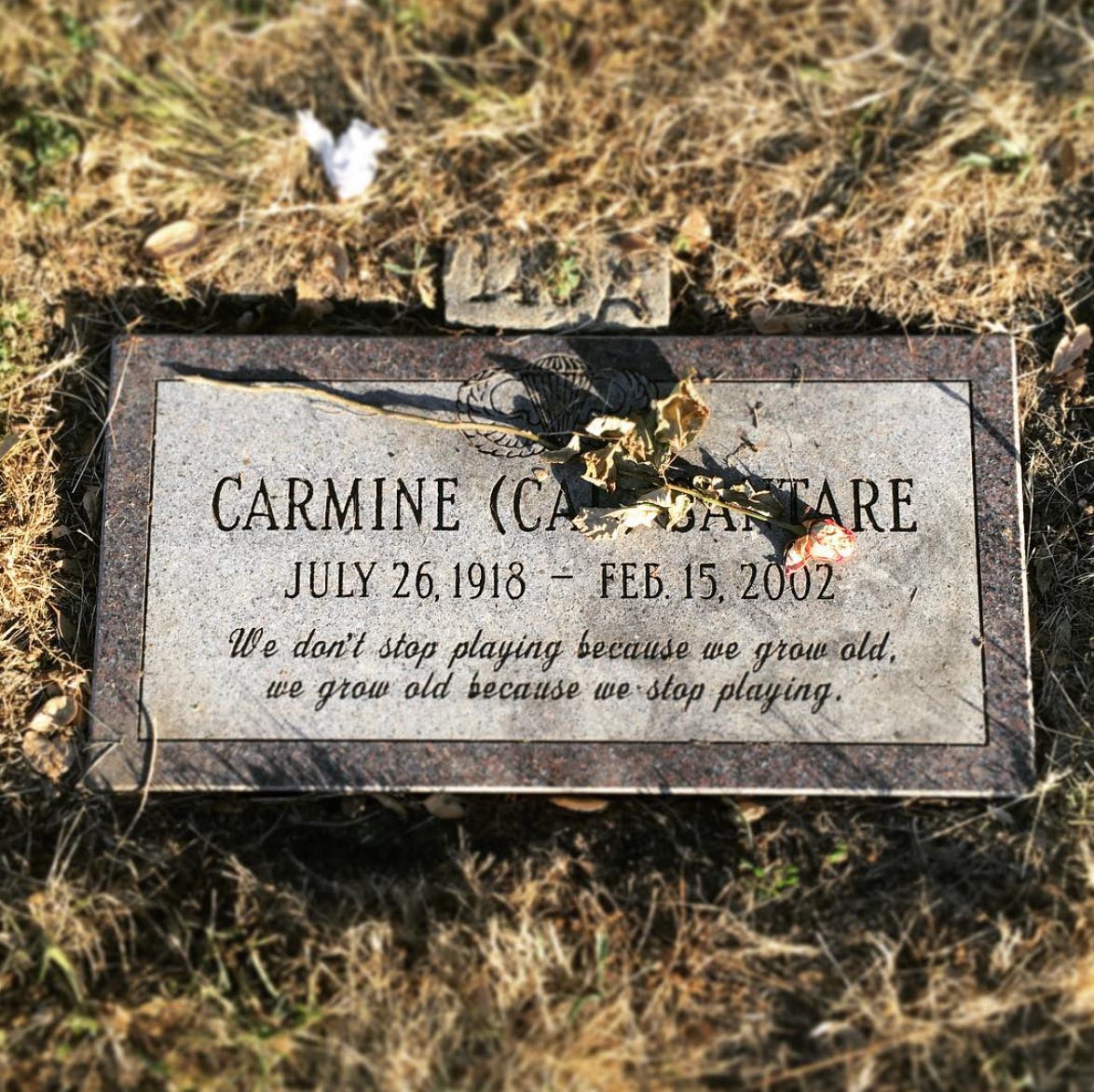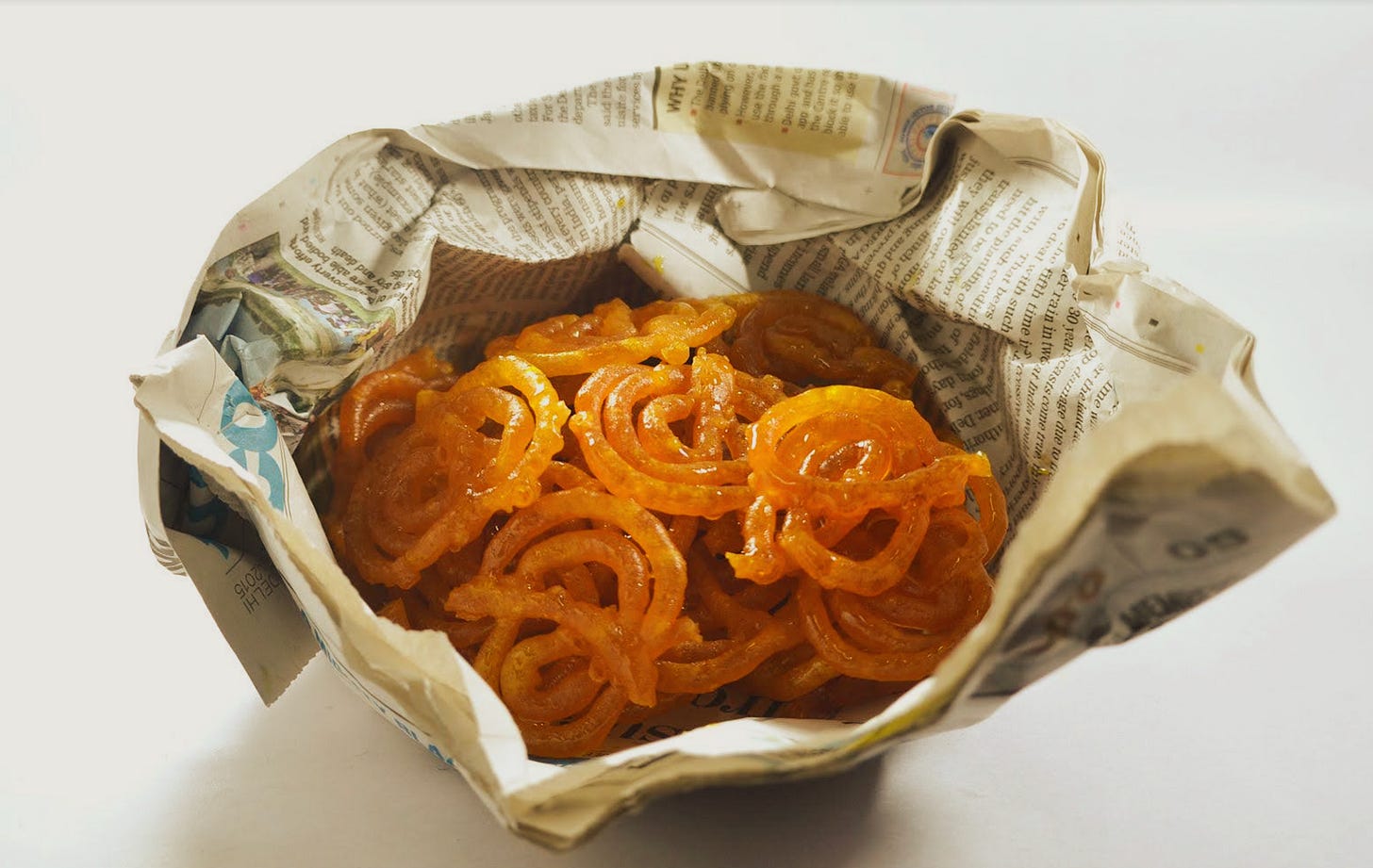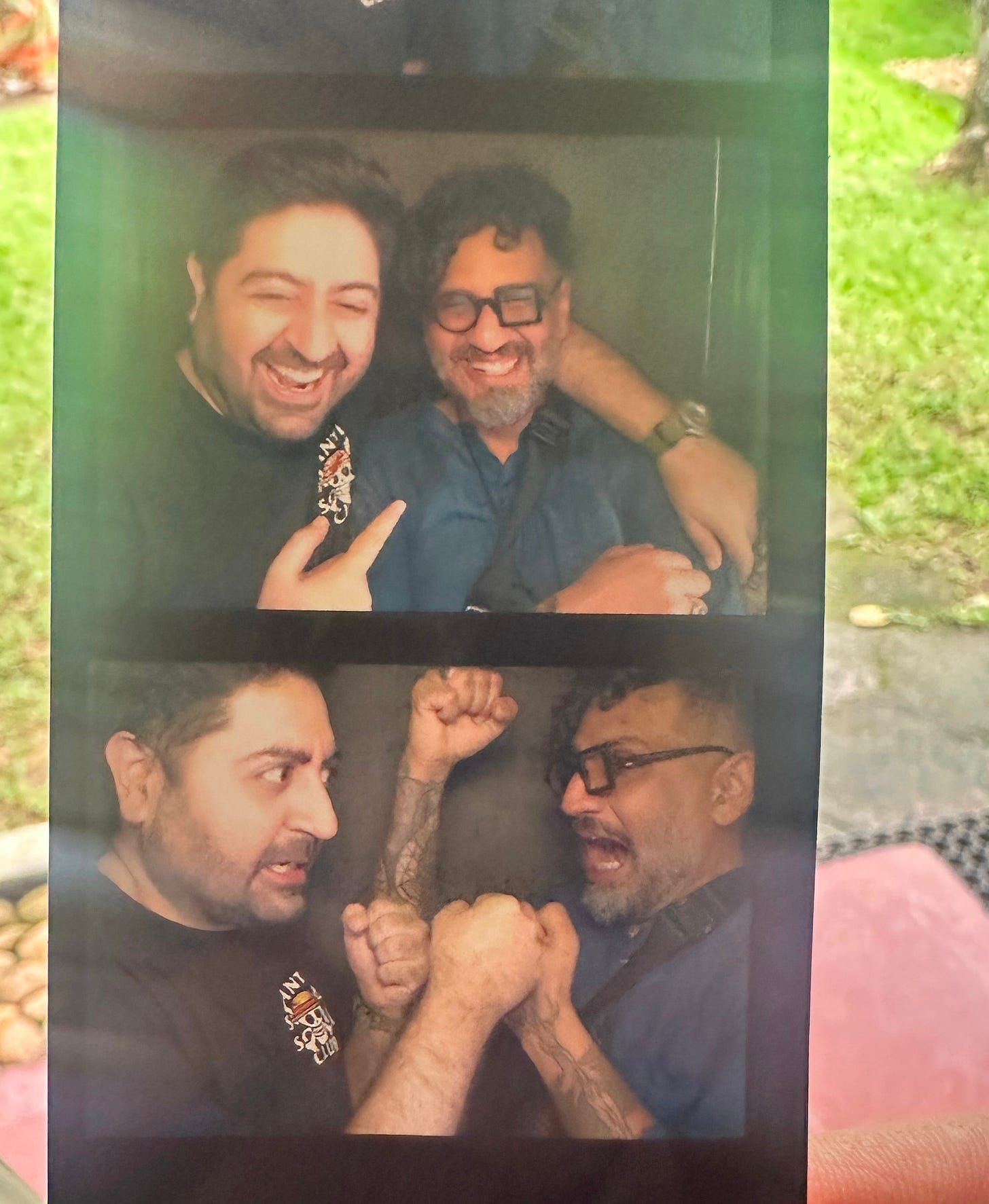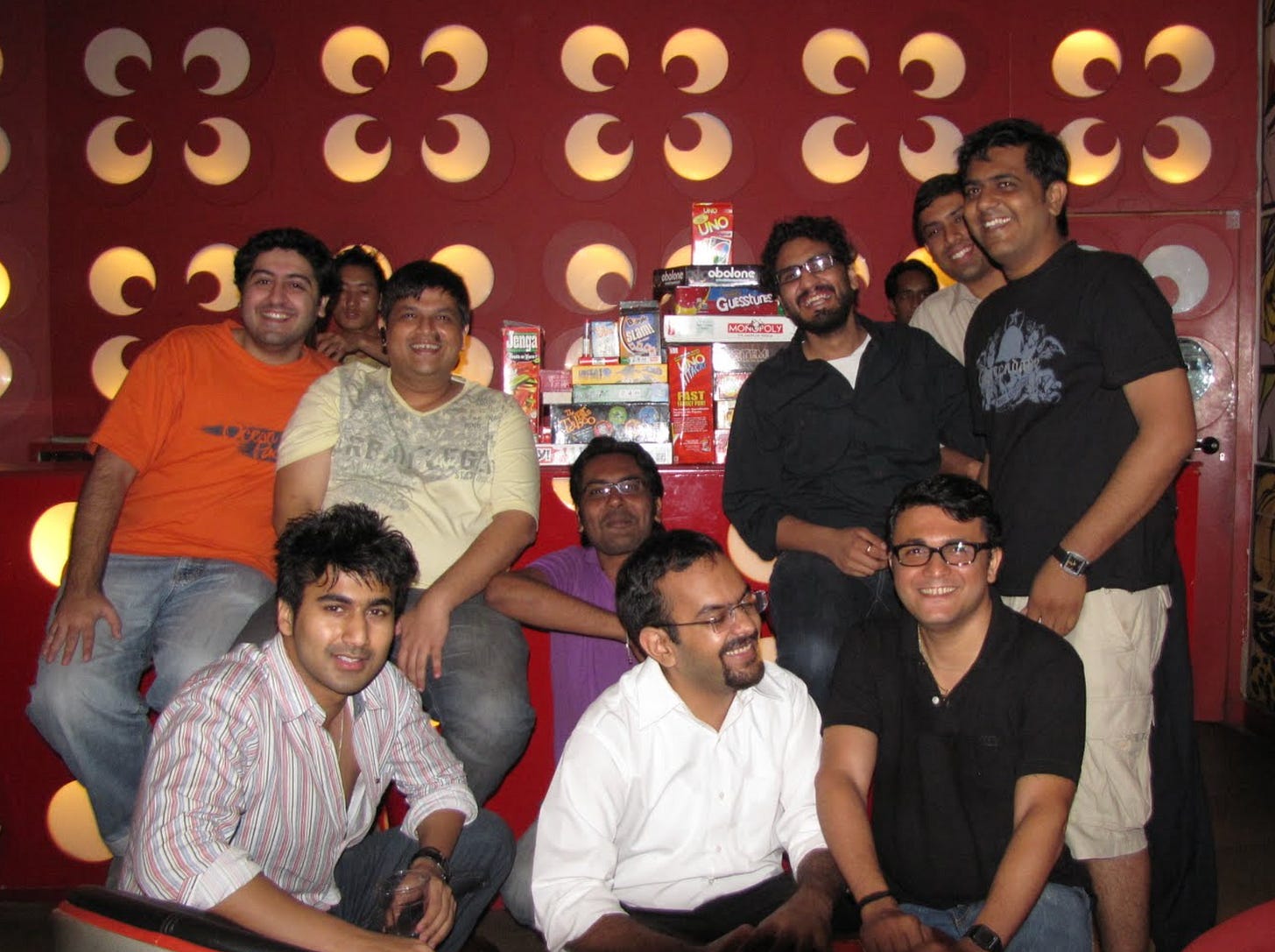Flow of Play: A Mumbai Jalebi of Creation
In Mumbai's sweetshops, skilled hands spiral liquid batter into hot oil, creating intricate patterns that transform through heat into jalebi—those crisp, golden coils soaked in saffron-scented syrup that have delighted generations. Watch how the artisan's movements embody both precision and flow: too rigid, and the spiral breaks; too loose, and it loses form. Like play itself, jalebi-making is a dance between structure and freedom, where expertise meets improvisation to create something magical. Served on beds of newsprint where global affairs become mere placemats for moments of delight, hot syrupy spirals transform yesterday's headlines into today's joy. Just as jalebi reaches its peak when eaten fresh and warm, bringing strangers together in shared delight during festivals like Holi, play reveals itself as the force that transforms fixed boundaries into fields of possibility.
Play is the cosmic force through which all creation unfolds. Like the cosmic concept of leela, where the universe itself emerges as divine play, it becomes both deepest truth and greatest gift—transforming corporate boardrooms into realms of possibility, turning strangers into co-creators in citywide games, helping volunteers find common ground in temple construction (where even a simple game of Kombucha could bridge seemingly impossible divides). Play isn't just an activity but the very essence of how life reinvents itself—our native language for exploring what's possible.
This dish is part of Framework to Table: A Regenerative Feast of Innovation. Like any good recipe, it can be savored on its own. In the kitchen, the sizzle of oil and scent of saffron remind us how simple ingredients become extraordinary through transformative play, where innovation appears not as a forced march but as a natural unfolding of possibility.
The Kitchen Team
Today's gathering brings guides who understand play's dual nature as cosmic force and practical tool, much like the jalebi master who knows both precise technique and intuitive flow:
Stuart Brown - Play's evolutionary champion His research reveals how play's primal power creates the psychological safety essential for breakthrough thinking
Johan Huizinga - Cultural play philosopher His wisdom shows how sacred play spaces become laboratories where innovation naturally emerges
Brian Sutton-Smith - Navigator of play's complexity His insights illuminate how play's very ambiguity becomes its most practical strength
Mihaly Csikszentmihalyi - Master of flow His understanding connects us to those states where divine creativity meets human innovation
"Play isn't something we force—it's how we participate in life's continuous creation..."
The Essence of Play
Play cracks open what seems fixed, revealing the fluid possibility waiting within everything. "Play shapes the brain, opens the imagination, and invigorates the soul," Stuart Brown reminds us in Play. Like watching jalebi batter transform from simple spiral into intricate lattice, play transforms rigid structures into frameworks for possibility. "Play is the only way the highest intelligence of humankind unfolds," Brown further illuminates. "The ambiguity of play allows us to explore the edges of our reality," Brian Sutton-Smith in his The Ambiguity of Play observes, showing us how play's very uncertainty becomes its strength. This truth reveals itself in transformed corporate hierarchies, in citywide games that forge unexpected connections, in temples built through collective creativity.
When working with teams and communities, play moves like heat through oil, finding pathways to transformation while creating the psychological safety essential for breakthrough thinking. "The opposite of play is not work—the opposite of play is depression," Brown observes, highlighting why play isn't just beneficial but essential for human thriving. "Play is older than culture," Johan Huizinga reminds us in Homo Ludens, and this primal wisdom emerges in board game cafes where titles and hierarchies dissolve like sugar in syrup, in community experiments where diverse perspectives find common ground.
The Nature of Play
Play moves through creation like the aroma of fresh jalebi through morning air, awakening possibility wherever it touches. "Play is a voluntary activity or occupation executed within certain fixed limits of time and place, according to rules freely accepted but absolutely binding," Huizinga notes. Like the precise yet flowing movements of jalebi-making, play thrives in the balance between structure and freedom. "Through play, humans explore possibilities, test boundaries, and create meaning," Sutton-Smith tells us, revealing how play becomes our most natural way of turning the unknown into sources of discovery and resilience.
Something magical happens when play evolves into flow, when action and awareness merge into pure being. "The best moments in our lives," Mihaly Csikszentmihalyi observes in Flow, "occur when a person's body or mind is stretched to its limits in a voluntary effort to accomplish something difficult and worthwhile." This becomes play at its highest expression—an individual lost in creative work, a team finding their collective rhythm. Within this state emerges an inner game, a personal quest for mastery that needs no external validation. Like a musician finding ever-more subtle expressions within a familiar piece, or a team discovering new levels of collaborative possibility, flow creates its own momentum toward deeper understanding and achievement. The challenge isn't imposed from outside but arises naturally from within—a constant invitation to explore what else might be possible.
The magic lies in the dance between structure and freedom. Like the jalebi master who knows exactly when to pour and when to let the pattern form itself, structure in play isn't rigid control but helpful containment. These boundaries might be physical (the lines on a game board), temporal (the length of a play session), or conceptual (the agreed-upon rules of engagement). Unlike bureaucratic constraints that stifle, play's structures exist to liberate, providing the safety needed for experimentation.
Infinite Play

This simple epitaph on a tombstone reveals a profound truth about play's eternal nature. Like the recipe for jalebi, passed down through generations yet made new with each creation, play isn't just an activity we sustain—it's a state of being that sustains us, keeping us forever young in spirit and alive to possibility.
Flow becomes the gateway to this infinite play state. In those moments of deep immersion—facilitating a game, designing an experience, watching a community come alive—time itself transforms, much like those festival moments when the first bite of warm jalebi seems to stretch into eternity. "Flow is the state in which people are so involved in an activity that nothing else seems to matter," Csikszentmihalyi tells us. Each flow state becomes a portal to the next discovery, each moment of play opening into new possibilities.
Within this flow emerges an internal game that creates its own momentum. Like a jalebiwallah who sees new possibilities in each spiral, players find themselves drawn deeper into their practice not by external rewards but by the pure joy of discovering what else might be possible. This inner drive toward mastery becomes self-sustaining—each achievement revealing new horizons, each skill mastered opening doors to subtler challenges that only become visible through devoted practice.
Infinite play isn't about duration but depth. Like the intricate patterns of jalebi that reveal new details with each glance, sustained play creates ever-expanding circles of possibility. Each playful interaction builds upon the last, creating an upward spiral of innovation and connection. Games aren't meant to end but to transform, each conclusion becoming an invitation to the next beginning.
Teams that maintain a playful spirit don't just solve problems—they transcend them, finding solutions that open new horizons rather than closing possibilities. This state of infinite play helps organizations stay adaptable and alive, preventing the calcification that comes when we think we've reached an endpoint.
The key to sustaining infinite play lies in the balance between engagement and renewal. Like the continuous process of jalebi-making, where each batch requires both focused attention and fresh energy, play remains eternal through the oscillation between intense focus and open possibility. The best experiences honor this rhythm, creating spaces where people can dive deep into flow while maintaining the lightness that keeps play alive.
Essential Ingredients
For Creating Containers:
Inviting structure (that supports exploration like the spiral pattern guides creation)
Right level of challenge (balanced like heat that transforms without burning)
Enabling constraints (rules that free rather than restrict)
Dissolving boundaries (containers that naturally evolve or fade when mastered)
For Awakening Freedom:
Permission to explore (as fluid as batter finding its form)
Room for spontaneity (where unexpected patterns can emerge)
Choice and agency (like the artisan's intimate knowledge of timing)
Genuine options (real possibilities to discover and create)
For Sustaining Engagement:
Immediate feedback (clear as watching golden spirals form)
Achievable goals (that stretch but don't overwhelm)
Intrinsic rewards (joy in the doing itself)
Natural consequences (learning through experience)
For Collective Flow:
Shared rhythm (finding group synchronicity in movement and timing)
Team signals (the glances, nods, and micro-celebrations that become a secret language)
Play courts (rituals and boundaries that mark when we're in the game)
Trust space (the safety to be vulnerable and playful together)
Collective presence (full attention and responsiveness to each other)
A Final Tasting Note
Written in the eternal dance of play
Play transforms the boundaries between possible and impossible into portals of possibility. Its wisdom teaches:
Play isn't just what we do—it's how reality explores itself through us
The magic of play lies not in escaping reality but in revealing its infinite malleability
In true play, we don't solve problems—we outgrow them
Flow emerges when we forget ourselves in service of what wants to emerge
Through play, structure becomes invitation rather than limitation
Play dissolves time into pure presence, where all possibilities coexist
In play, we remember who we really are and what we're capable of becoming
Play becomes the foundation from which everything grows. When teams and communities embrace it as both sacred practice and practical tool, new realms of possibility emerge. Each genuine moment becomes a bridge to breakthrough, each shared experience a source of collective genius.
Recommended Pairings
Like the perfect accompaniments to fresh jalebi, these works deepen understanding of play's transformative power:
Play: How It Shapes the Brain, Opens the Imagination, and Invigorates the Soul by Stuart Brown - Explores how play is essential for innovation, adaptation, and human development, revealing its biological and psychological importance.
Homo Ludens by Johan Huizinga - A foundational exploration of play's role in culture, showing how it creates the sacred spaces where civilization and creativity flourish.
The Ambiguity of Play by Brian Sutton-Smith - Illuminates how play's very complexity and ambiguity make it a powerful force for human development and cultural innovation.
Flow: The Psychology of Optimal Experience by Mihaly Csikszentmihalyi - Investigates the state of complete engagement where challenge and skill meet, revealing how flow states enhance both performance and satisfaction.
Looking Ahead
As the transformative power of play continues to ripple through me, I prepare for our next essential course exploring curiosity ecology. Together with Peter Senge showing us how "curiosity is at the heart of any learning organization," Teresa Torres revealing how curiosity becomes an embedded rhythm rather than occasional exercise, and Richard Sennett illuminating how craft itself emerges from "an openness to discovery," we'll explore a Gujarati thali—a feast of diverse elements on a single plate. Mary Catherine Bateson reminds us that "the capacity to learn is greater than the capacity to know," while Margaret Wheatley invites us to "step beyond our silos and see learning as a shared journey." Through their wisdom and the rich traditions of Gujarati cuisine, we'll discover how curiosity creates its own ecology of continuous unfolding.
"In my experience, each moment of play becomes both completion and beginning, an invitation to discover what else is possible..."
Personal Note
Through designing games that forge unexpected connections, facilitating experiences that dissolve artificial boundaries, and approaching even the most serious endeavors with playful spirit, I've witnessed how play transforms not just moments but entire realities. Some of my deepest experiences of play's transformative power come from my friendship with Kumar, who began as my co-founder of Board Games Bash and became one of my closest friends. Together, we helped create Mumbai's largest board games collective, but more than that, we discovered how play could weave itself into every aspect of life.
Our friendship, born through play, grew into a profound creative partnership at work. The office became our playground—every commute, every meeting, every challenge became an opportunity for collaborative creation. Ideas flowed between us with a natural rhythm, each building on the other's thoughts until it became impossible to say where one person's contribution ended and another's began. We developed a way of working that transcended individual ego, where play became our shared language for possibility. Even the most outlandish ideas became launching pads for practical innovation—we'd find ways to transform seemingly impossible concepts into viral campaigns, engaging apps, and immersive experiences.
I especially remember celebrating Holi together, where our natural inclination toward play found perfect expression in the festival's joyful chaos. The way we approached those celebrations mirrored how we approached our work—with complete openness to possibility and a shared delight in creation.
This spirit of play has threaded through all my significant memories. I remember my grandfather's weekly ritual of bringing me fresh jalebi on Sundays—how I would jump with excitement at the sight of the shop's shutters opening, the anticipation building as he'd go to get them, the pure joy of that first warm, crispy bite. During Holi, my favorite festival, my mother would mark our play-filled celebrations with jalebis, the sweetness mixing with the colorful chaos of the day. From those childhood moments to facilitating citywide games, from corporate innovations that started as playful experiments to community rituals that turned spaces into playgrounds—I've seen how play creates magic that logic alone could never achieve.
These experiences have shown me that play isn't just what we do—it's who we are at our most alive. Through Kumar, I learned how play can elevate collaboration into something approaching art, where creativity flows without boundaries and ideas become reality through shared imagination. Through Board Games Bash, I witnessed how play brings strangers together and turns them into family. Through countless moments of shared delight—whether over warm jalebis or breakthrough ideas—I've discovered that play is the force that keeps us young, the wisdom that keeps us growing, and the joy that keeps us creating.
✧ ✧ ✧
In the spirit of play's eternal gifts, I carry deep gratitude for Shankar, my childhood best friend whose presence in my life remains one of my greatest treasures. What society saw as differences—language, education, caste, physical size—play revealed as meaningless in the face of genuine friendship. In him, I found a playmate whose imagination, warmth, and laughter made every day an adventure. When I fell gravely ill in seventh grade, our paths diverged as he returned to his village, and I never got to say goodbye. But wherever he is now, in this world or beyond, I hope he knows that his smile and laughter live on in the way I understand play's power to reveal our shared humanity. Some friendships, like the purest forms of play, exist beyond time and space, teaching us that what we create together is far more important than the barriers others might see between us.




